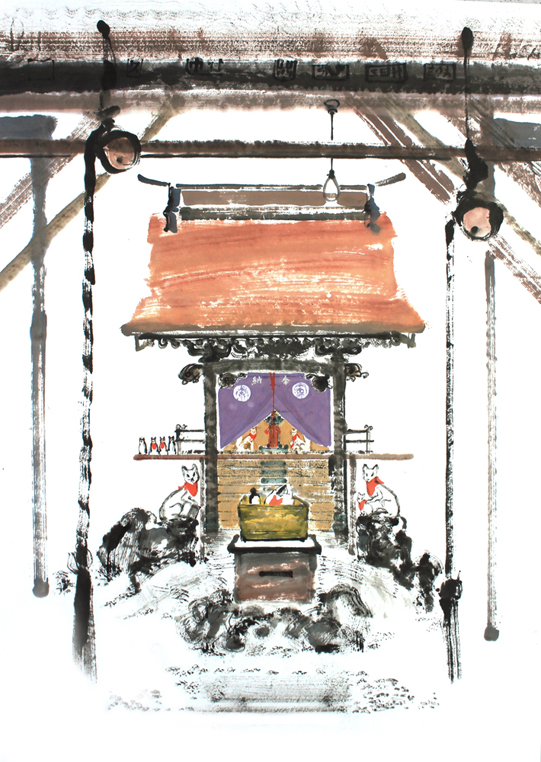
Shrines
- 17 September - 3 November 2019
- 10am - 4:30pm (cafe closes at 4pm), closed on a Monday unless a Bank Holiday
- Upfront Gallery, Nr Hutton-in-the-Forest, Unthank, Penrith, Cumbria CA11 9TG
- https://up-front.com
- 017 6848 4538
- info@up-front.com
- Tweet
Sumi-e, suiboku-ga and photographs of a journey around Japan visiting beautiful and mysterious Shinto shrines – the oldest, the greatest and the newest, all beautiful and mysterious, and their enshrined spirits – a sun goddess, a mountain, foxes, the mythical founders of the nation and heroes of national modernisation. This journey along with conversations with Shinto priests, historians, ultra-rightist activists, atom bomb survivors, old friends and strangers on the train amongst others, presented her with an opportunity to observe the country as it commemorates 150 years from its opening to the west and greets a new era.
Irene Sanderson first arrived in Japan in 1972 and set up a studio in Tokyo. One evening that hot summer she was invited to a class for the study of Japanese ink painting. In the windowless basement the master and her assistant, both in immaculate kimono, loaded brushes with sumi and set about creating images of the Four Friends. This artform based on the action of ink meeting paper has the intimacy of drawing, revealing origins and intentions, and its immediacy and candour captivated Sanderson. From then on, she began a lifetime’s involvement with these methods and aesthetics, incorporating them into her own distinctive style. It is this attitude and approach, knowledgeable and respectful of Japanese tradition but also alert to contemporary perceptions, that she brings to this portrayal of Japan at the start of the Reiwa era under the reign of the new Emperor.
For more information and for details of workshops and talks related to this exhibition please click here.
